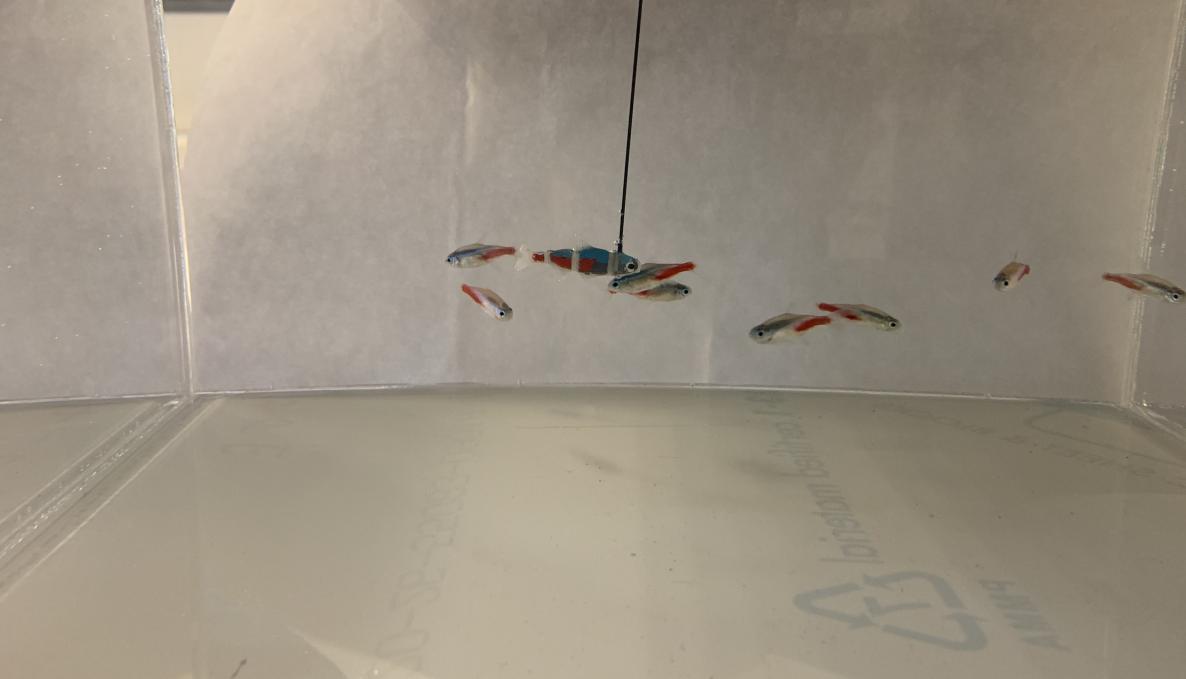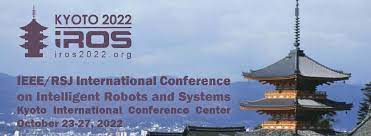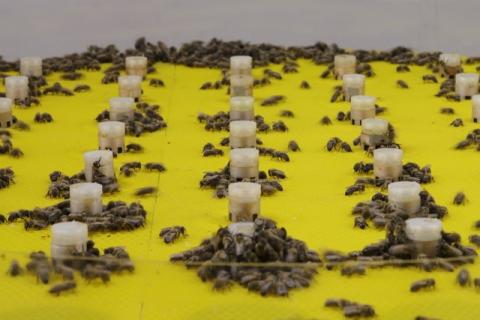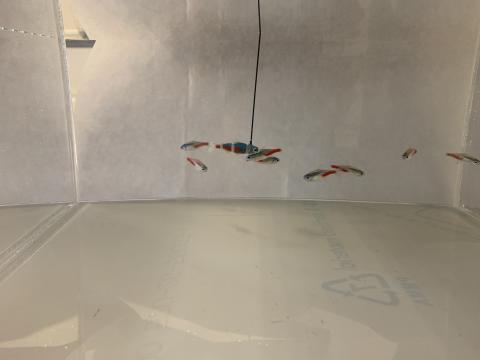Workshop on Animal-Robot Interaction – Second Edition
The link to connect is https://us06web.zoom.us/j/85622740943 or alternatively https://unimeet.uni-graz.at/b/sch-prg-uyd-z0j

The second edition of the workshop on Animal-Robot Interaction will be held in the framework of the IEEE/RSJ International Conference on Intelligent Robots and Systems (IROS), one of the largest and most impacting robotics research conferences worldwide. IROS provides an international forum for the international robotics research community to explore the frontier of science and technology in intelligent robots and smart machines.
The organizers of the international workshop are Donato Romano, Assistant Professor of The BioRobotics Institute, Sant’Anna School of Advanced Studies, Cesare Stefanini, full Professor of Sant’Anna School of Advanced Studies, and Principal Investigator of the Creative Engineering Design Area, and Thomas Schmickl, full Professor of the Institute of Biology & Artificial Life Lab, Karl-Franzens-University Graz.
Abstract
Organisms and robots engaged in different ecological interactions represent biohybrid dynamic systems enabling new multidisciplinary scientific and technological investigations. In animals, evolutionary processes have led to the development of nervous systems allowing process information of biotic and abiotic events and effective reactions. Conversely, recent technology developments have produced relevant advances in robotics and bionics engineering, facilitating the design of artifacts exhibiting life-like appearance and behavior, and perception by animals as living conspecific or heterospecific agents. This in turn allows the inclusion of robots in animal populations and communities, and the emergence of animal-robot interactions. Cognitive traits, including perception, learning, memory and decision making, play an important role in biological adaptations and conservation of an animal species. Robots can represent advanced allies in studying these behavioral adaptations, since they are fully controllable, and it is possible to adjust their position in the environment, allowing a highly standardized and reproducible ethorobotic experimental interaction. This research field represents a paradigm shift in the study of animal behavior, with potential applications to the control of animal populations in agriculture, to the improvement of animal farming conditions, as well as in preserving wildlife. Understanding animal intelligence through interactions with artificial agents relies on several "hot" research avenues, such as biomimetic control, soft robotics, (machine) learning of behavior, and many more. Animals are exceptional model organisms to use as a problem setting in which we develop new methods in the fields mentioned above. Animals can learn and remember, they exhibit inter-individual differences, they habituate to experimental settings. These abilities can be used to face fundamental robotics challenges when robots interact with biotic and abiotic environmental factors, including interactions with humans.
One of the aims of this scientific field is to advance animal wellness and environmental sustainability by mitigating the influence of human activities on ecosystems, thus contributing to emerging integrated approaches such as One Health and EcoHealth.
In addition, these biohybrid systems can act as distributed networks of sensors and actuators in which animals and robots take the best from each other, producing advanced bio-artificial multiagent systems with new biohybrid cognitive and physical capabilities. Animal-robot hybrid systems will bring new capabilities to current bioinspired robotic systems. Furthermore, animal-robot interaction, beside new knowledge, can hold a remarkable socio-economic impact on our daily lives, as well as on the environmental impact of humans. We consider this active scientific and technological field as the future of robotics and bionics as it merges the best of biological and engineering worlds, and includes multiple disciplines such as ethology, neuroscience, ecology, robotics, A.I., bio-systems engineering.
In summary this workshop aims at continuing to introduce and promote a broad range of methodologies and results based on a novel, highly multidisciplinary biomimetic approach and at providing a well substantiated vision on future strategic research lines in this field.
Intended audience
Target audience includes researchers from multiple disciplines, representatives of R&D departments from agritech and high-tech industry, research policy makers.
The first Workshop on Animal-Robot Interaction we organized at IROS2020 represented a significant landmark to introduce the potentiality of this field to the whole robotics community, and trigger further developments in the field. The aim of this second edition of the Workshop on Animal-Robot Interaction is to continue promoting the emergent field of animal-robot interaction to an even wider and multidisciplinary audience, and in particular to the robotics community, as well as take stock of the situation on the progress made since the last IROS Workshop. It will facilitate communication and exchange of information among roboticists and biologists that want to learn innovative approaches to establish animal-robot interactions to successfully investigate and control natural-artificial systems, by exploiting the synergic contribution from multiple scientific and technological fields. Also, it is an attempt to help biologists and in particular zoologists to shift from traditional ethological methods to the highly advanced approach offered by robotic systems, in order to improve reliability and reproducibility of their studies in an Open Science perspective.
Invited Speakers
- Prof. Maurizio Porfiri, Department of Mechanical and Aerospace Engineering, Department of Biomedical Engineering, New York University, Brooklyn, NY, USA.
- Dr. David Bierbach, Department of Biology and Ecology of Fishes, Leibniz-Institute of Freshwater Ecology and Inland Fisheries, Berlin, Germany.
- Dr. Giovanni Polverino, Centre for Evolutionary Biology, The University of Western Australia, Perth, Australia.
- Prof. Auke Ijspeert, the Biorobotics Laboratory, Institute of Bioengineering, EPFL, Lausanne, Switzerland.
- Prof. Gerhard von der Emde, Institute of Zoology Neuroethology - Sensory Ecology Poppelsdorfer Schloss Meckenheimer Allee 169 53115 Bonn Germany.
- Prof. Heiko Hamann, Institute of Computer Engineering, University of Lübeck, Lübeck, Germany.
- Dr. Ronald Thenius, Institute of Biology & Artificial Life Lab Karl-Franzens-University Graz, Austria.
- Wiktoria Rajewicz, Institute of Biology & Artificial Life Lab Karl-Franzens-University Graz, Austria.
- Asya Ilgün, Institute of Biology & Artificial Life Lab Karl-Franzens-University Graz, Austria.
- Martin Stefanec, Institute of Biology & Artificial Life Lab Karl-Franzens-University Graz, Austria.
- Prof. Edoardo Datteri, Laboratory of Robotics for the Cognitive and Social Sciences, Department of Human Sciences for Education "R. Massa", University of Milano-Bicocca, Italy.
Endorsement
The Workshop on Animal-Robot Interaction (Second Edition) is endorsed by:
- The IEEE/RAS Technical Committee for Cyborg and Bionics Systems
- The IEEE/RAS Technical Committee for Bio Robotics
Sponsorship
HUBILIFE s.r.l.



